Life throws unexpected challenges, and for many women, the dream of motherhood or hormonal balance can feel out of reach due to ovarian issues. Did you know that about 10% of women globally suffer from premature ovarian failure, and nearly 1 in 8 couples face infertility issues? This is where ovarian transplantation steps in—not just as a medical procedure but as a ray of hope for those longing to rewrite their future. With success rates for ovarian tissue transplants improving steadily and helping women restore natural hormone production or conceive, this innovation holds incredible promise. Let’s explore what this involves, how it changes lives, and why it’s a topic close to the hearts of so many.
What Is Ovarian Transplantation?
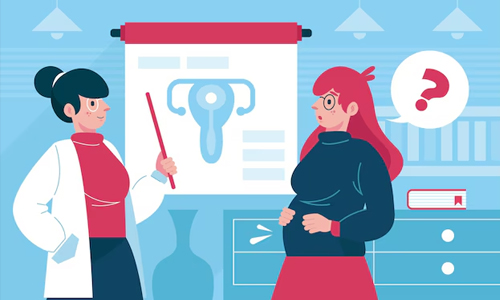
Ovarian transplantation is a medical procedure, where the ovarian tissue is transplanted from a donor or the patient’s own preserved tissue. It’s often performed for women facing infertility or premature ovarian failure due to conditions like cancer treatments or genetic disorders. While it sounds complex, it’s a powerful way to restore ovarian function, balance hormones, and even reignite the possibility of natural conception.
An Emotional Side of Ovarian Transplantation
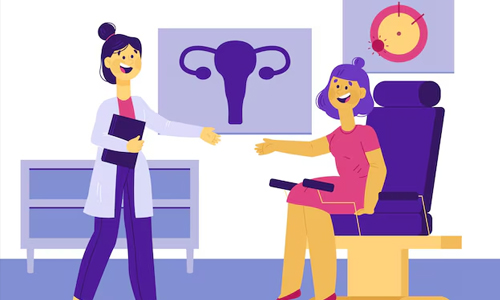
Any procedure involving reproduction comes with a rollercoaster of emotions. There’s hope, excitement, and sometimes fear. But that’s okay. It’s natural to feel a mix of emotions when exploring a journey like this. The important thing to remember is that you’re not alone. Advances in medical science, coupled with compassionate care, mean there’s support at every step.
Who Might Need Ovarian Transplantation?
Ovarian transplantation isn’t a routine procedure, but for some women, it can be a life-altering option.
1. Women Facing Infertility

Infertility can feel like an insurmountable hurdle for those dreaming of motherhood. Women with conditions like ovarian failure, or severely diminished ovarian reserves often consider transplantation. By restoring ovarian function, this procedure can open the door to natural conception.
2. Cancer Survivors

Treatments like chemotherapy and radiation can save lives, but they often take a toll on fertility. For women who’ve undergone these therapies, frozen ovarian tissue preserved before treatment can be transplanted back to restore hormonal balance and the possibility of having children.
3. Premature Ovarian Failure
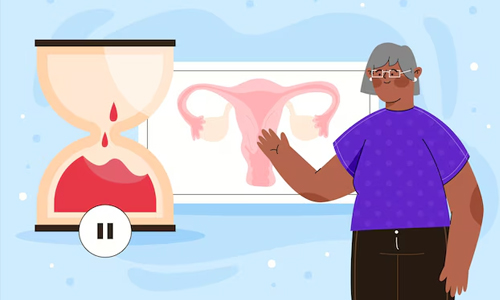
Early menopause, also known as premature ovarian failure, can cause hormonal imbalances and infertility. Transplanting healthy ovarian tissue can reverse many of these effects, giving women a second chance at fertility and relieving menopause symptoms.
4. Genetic Conditions

Disorders like Turner syndrome, or other genetic conditions that impact ovarian health may make transplantation a viable path for restoring ovarian function.
What Happens During the Procedure?
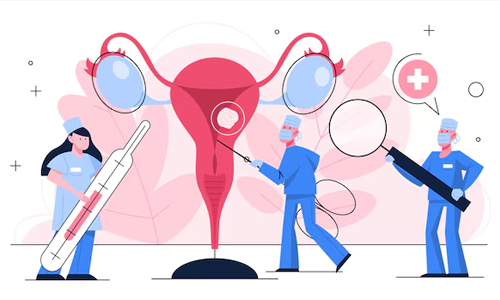
The ovarian transplantation process is a meticulous blend of science and care, involving several steps.
Preparation
- If ovarian tissue has been preserved earlier (often before cancer treatments), it’s frozen using cryopreservation. This ensures the tissue remains viable until it’s needed.
- In cases involving a donor, a thorough compatibility check is conducted to minimize rejection risks.
The Transplantation Surgery
- The preserved or donor ovarian tissue is carefully implanted into the recipient’s body. Surgeons typically place the tissue near the fallopian tubes to ensure optimal functionality for hormone production or egg release.
- The surgery is done under general anesthesia, and precision is key to ensure the tissue integrates well into the recipient’s body.
Recovery and Monitoring
- Post-surgery, doctors monitor the patient’s progress closely to ensure the tissue is functioning as expected.
- Blood tests and imaging may be used to assess hormonal levels and ovarian activity. Patients often begin to notice the return of normal cycles and hormonal balance over time.
Success Stories: A New Lease on Life
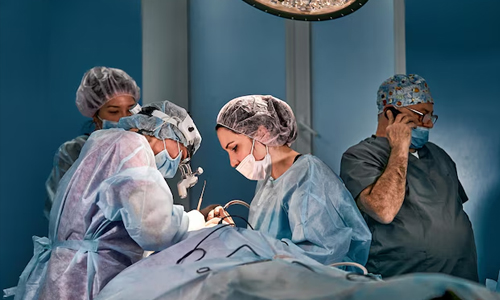
Behind every medical procedure are real people with extraordinary stories.
1. A Cancer Survivor’s Second Chance
Emily, a young woman diagnosed with ovarian cancer at 25, preserved her ovarian tissue before starting chemotherapy. Five years later, she underwent transplantation and was able to conceive naturally. Her journey from survival to motherhood is a testament to the resilience of the human spirit and the miracles of modern medicine.
2. Turning Back the Clock on Early Menopause
Sarah experienced premature ovarian failure in her late 20s. Alongside the challenges of early menopause, she faced the heartbreak of infertility. After transplantation, Sarah regained hormonal balance and became pregnant two years later—a dream she thought she’d never achieve.
3. Hope for Genetic Disorders
Rachel, born with Turner syndrome, never imagined she could have children. Through ovarian transplantation from a donor, she gained the opportunity to experience motherhood. While the path was not easy, the success of the procedure gave her a sense of normalcy she once thought was impossible.
Things to Consider Before Choosing Ovarian Transplantation
Ovarian transplantation is a groundbreaking option, but it’s not a decision to take lightly.
Is It the Right Choice for You?
Not every case of infertility or hormonal imbalance requires transplantation. Alternative treatments like IVF or hormonal therapy might be better suited for some. Consulting a reproductive endocrinologist is the first step to understanding your options.
Risks and Complications
As with any surgery, ovarian transplantation carries risks, including infection, rejection of the transplanted tissue, and surgical complications. A thorough discussion with your doctor about these risks is crucial.
The Emotional Journey
This is not just a physical process—it’s an emotional one. The highs of hope and the challenges of uncertainty can take a toll. Speaking with a counselor or joining support groups can help navigate this path.
Financial Considerations
The procedure, preservation, and related treatments can be expensive. Exploring insurance coverage and financial support programs can make this journey more manageable.
Commitment to Follow-Up Care
Post-transplantation care is essential to ensure the success of the procedure. Regular check-ups, hormonal assessments, and potential additional treatments are part of the commitment.
Who Can Donate Ovarian Tissue?
Ovarian tissue donation is a compassionate and life-changing gift that provides hope to those struggling with infertility or hormonal imbalances. However, not everyone can donate ovarian tissue. Donors are usually healthy women under a certain age—typically 35—who have good ovarian function and are free from genetic or infectious diseases. Often, the donor might be a family member, like a sister, as compatibility increases the likelihood of success.
Screening processes are thorough to ensure both the donor’s and recipient’s safety. This includes a complete medical history review, physical exams, and blood tests to check for potential risks. Donors should also be emotionally prepared, as ovarian tissue donation is a deeply personal decision that requires significant consideration and support.
Ethical considerations also play a role. For instance, donations must be voluntary, informed, and free from coercion. If you’re considering donating ovarian tissue, consulting with a fertility specialist and seeking counseling can help clarify the process and emotional impacts.
Lifestyle Adjustments After Ovarian Transplantation

After undergoing ovarian transplantation, life doesn’t simply return to normal overnight. The procedure brings hope but also requires dedication to recovery and ongoing care. Post-transplantation, patients are advised to closely monitor their health and follow their doctor’s recommendations.
- Medication – Anti-rejection drugs may be necessary to prevent the body from rejecting the transplanted tissue. Hormonal therapy might also be prescribed to regulate cycles and support ovarian function.
- Regular Check-Ups – Routine follow-ups with your medical team are critical. These appointments help monitor hormone levels, ovarian activity, and overall health.
- Healthy Diet – A nutrient-rich diet that supports hormonal health, including foods high in omega-3s, antioxidants, and vitamins, can optimize recovery and long-term well-being.
- Stress Management – Stress can impact hormonal balance, so engaging in practices like yoga, meditation, or therapy can be beneficial.
- Activity Levels – Physical activity is encouraged, but strenuous exercise might need to be avoided initially to allow for proper healing.
Remember, recovery is a journey, not a race. Embracing a positive mindset and building a strong support system with loved ones and healthcare professionals can make all the difference.
Future Possibilities: What’s Next for Ovarian Transplantation?
The future of ovarian transplantation is as exciting as it is promising. Researchers are constantly innovating to improve success rates, accessibility, and safety. One area of focus is tissue engineering, where scientists are exploring ways to create artificial ovaries using bioengineered scaffolds. This could revolutionize the procedure, offering hope to patients who don’t have compatible donors.
Another exciting development is cryopreservation advancements, allowing ovarian tissue to be frozen for extended periods and used later. This technology is particularly beneficial for young cancer patients who want to preserve fertility before undergoing treatments like chemotherapy.
Ethical and cultural shifts are also on the horizon. As discussions around fertility preservation and women’s health become more mainstream, awareness and acceptance of procedures like ovarian transplantation are growing. This could lead to wider availability, reduced costs, and increased research funding.
In the long run, ovarian transplantation might not only restore fertility but also combat age-related hormonal decline, offering a new approach to managing menopause. The future is bright, and as science progresses, so does the hope for countless women dreaming of motherhood, or simply reclaiming hormonal balance.
Clara
Related posts
Women Tips
Privacy Overview
| Cookie | Duration | Description |
|---|---|---|
| cookielawinfo-checkbox-analytics | 11 months | This cookie is set by GDPR Cookie Consent plugin. The cookie is used to store the user consent for the cookies in the category "Analytics". |
| cookielawinfo-checkbox-functional | 11 months | The cookie is set by GDPR cookie consent to record the user consent for the cookies in the category "Functional". |
| cookielawinfo-checkbox-necessary | 11 months | This cookie is set by GDPR Cookie Consent plugin. The cookies is used to store the user consent for the cookies in the category "Necessary". |
| cookielawinfo-checkbox-others | 11 months | This cookie is set by GDPR Cookie Consent plugin. The cookie is used to store the user consent for the cookies in the category "Other. |
| cookielawinfo-checkbox-performance | 11 months | This cookie is set by GDPR Cookie Consent plugin. The cookie is used to store the user consent for the cookies in the category "Performance". |
| viewed_cookie_policy | 11 months | The cookie is set by the GDPR Cookie Consent plugin and is used to store whether or not user has consented to the use of cookies. It does not store any personal data. |

